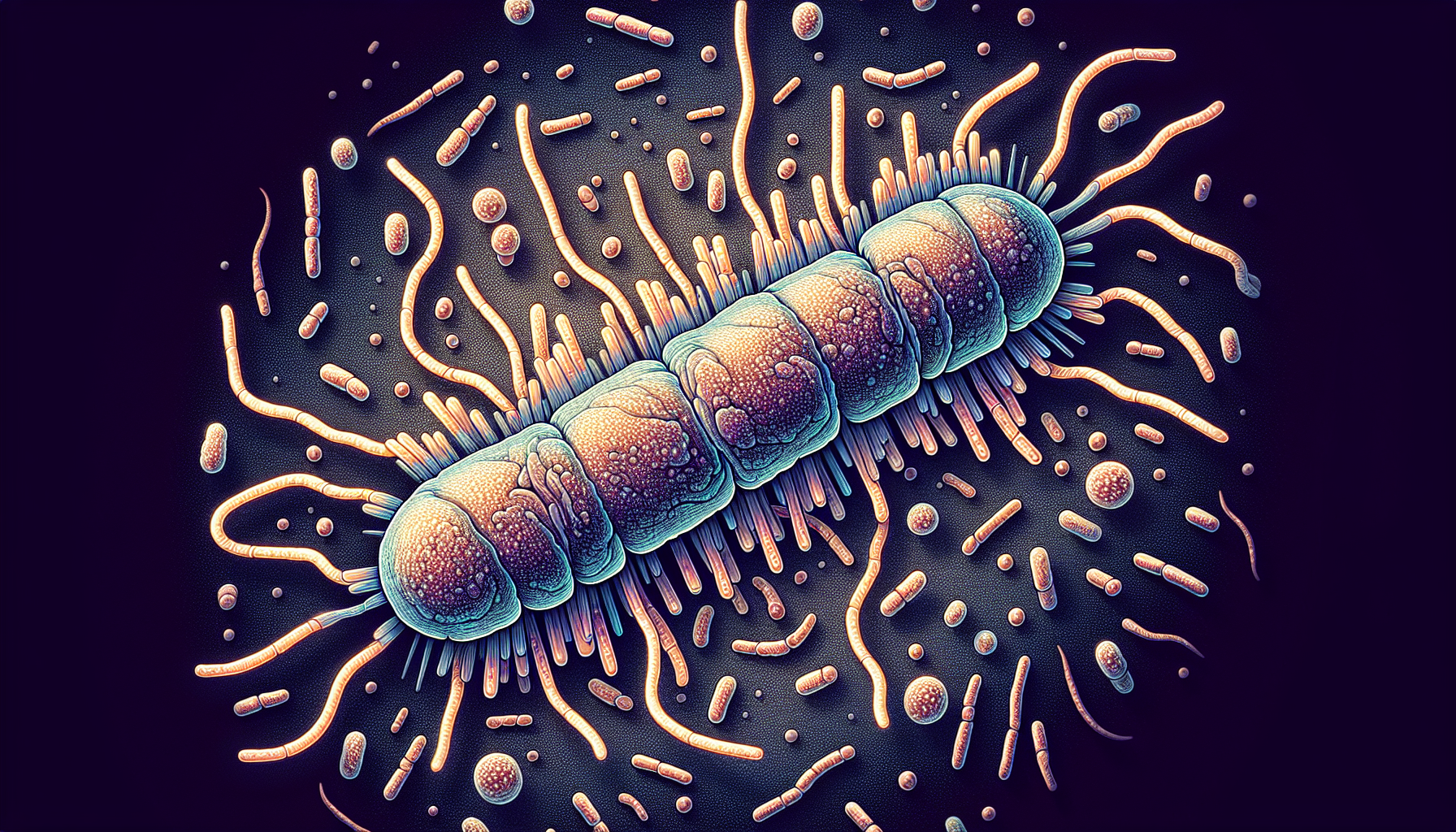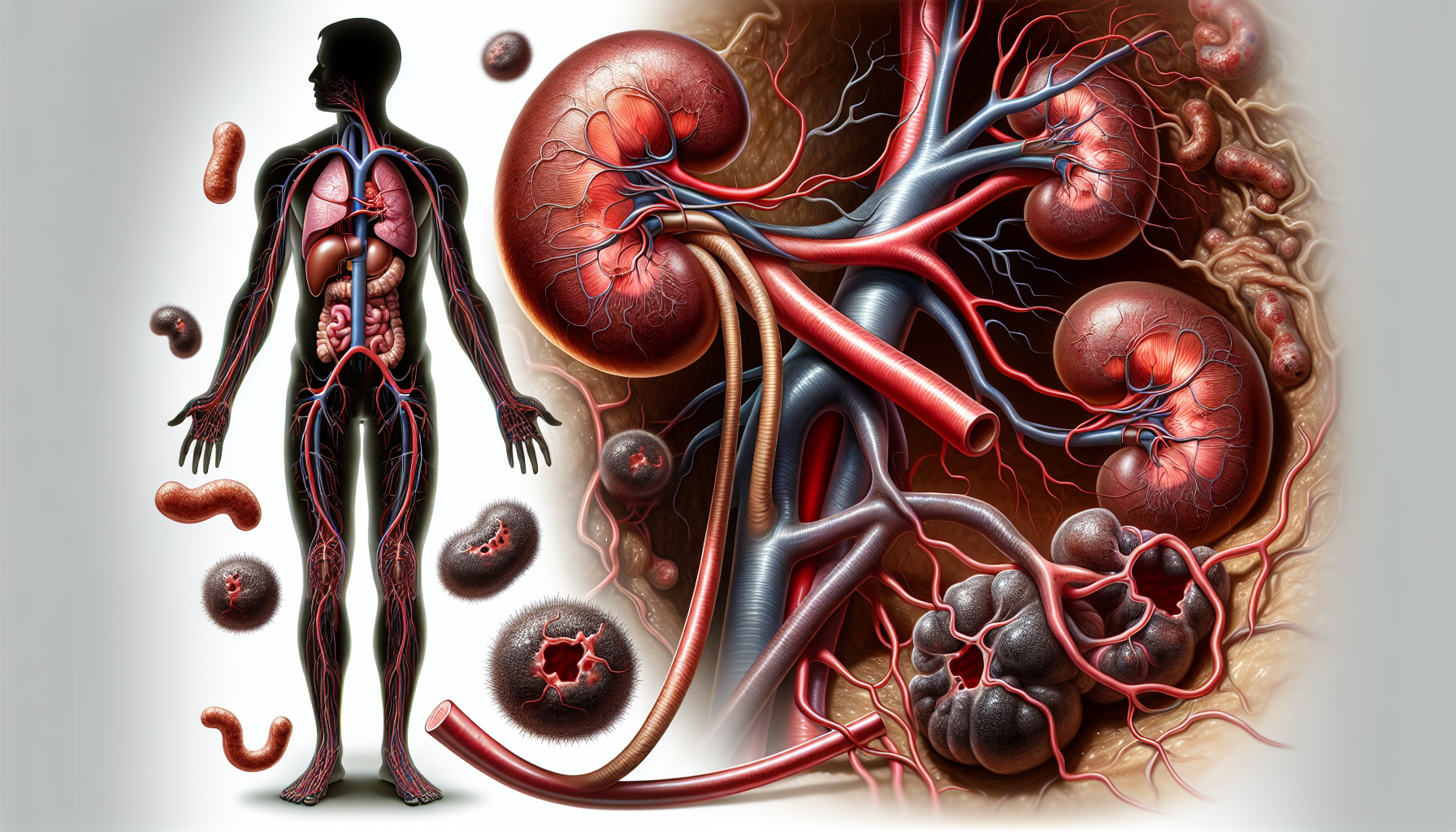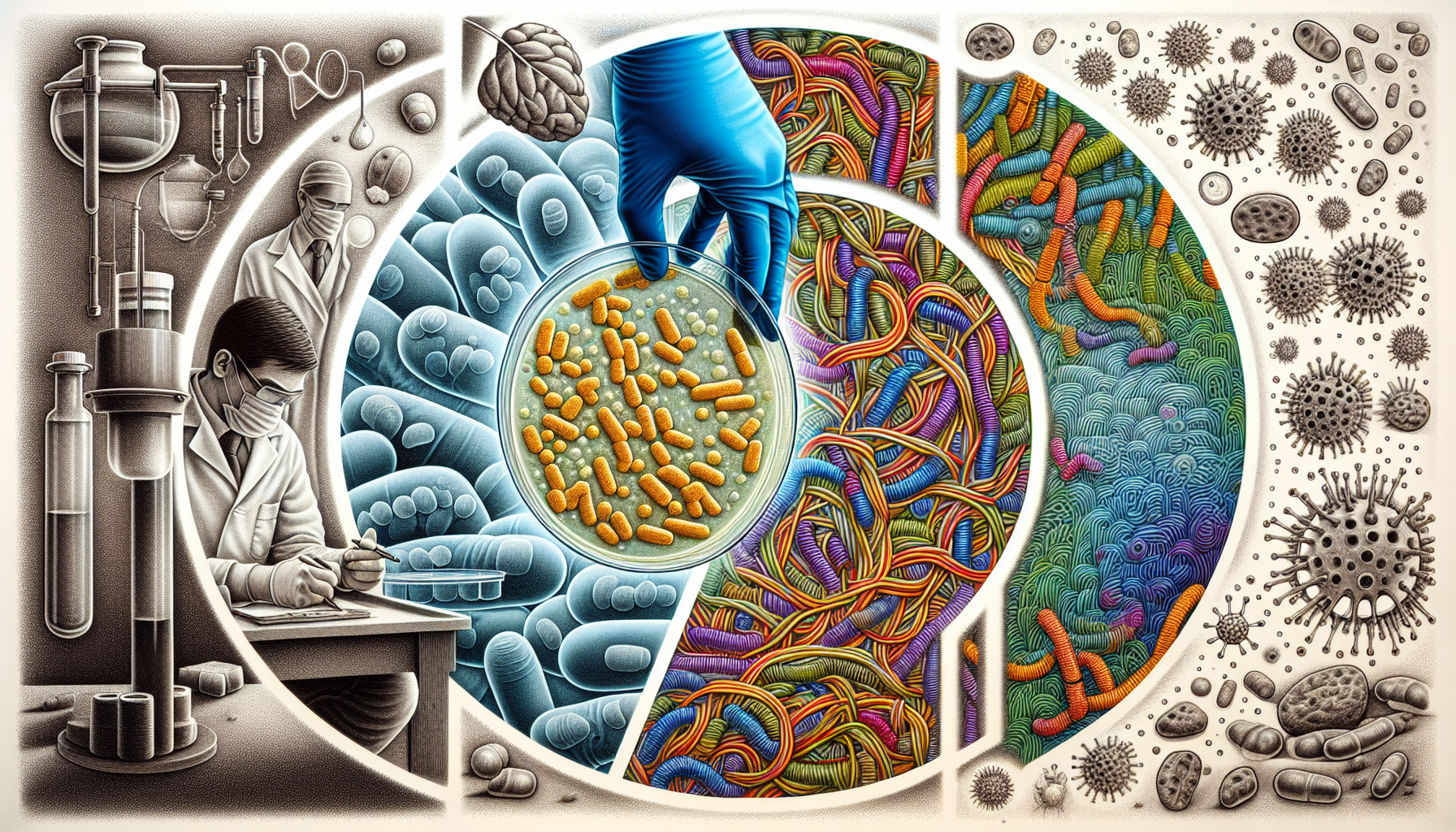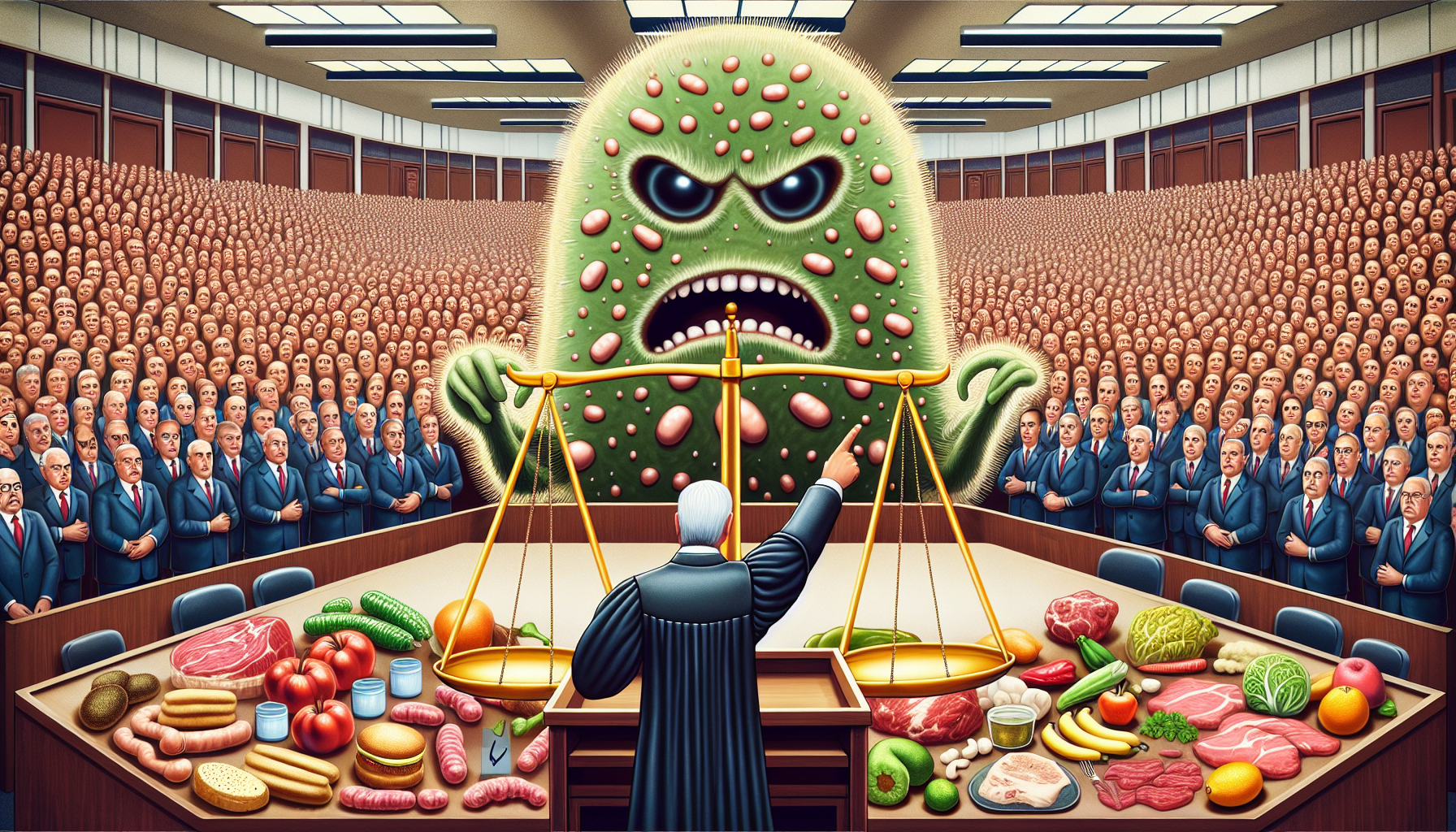Table of Contents
- Decoding the Role of an E.Coli Lawyer
- Legal Recourse for E.Coli Infection Victims
- Understanding E.Coli and Its Impact on Health
- Identifying Liable Parties in E.Coli Lawsuits
- Fee Structures of E.Coli Attorneys
- Recent E.Coli Outbreaks and Legal Actions
- When to Seek Legal Help for an E.Coli Case
- Complex Liability Cases
- Denied Claims and Insurance Challenges
- Statute of Limitations Concerns
- Proving Your E.Coli Food Poisoning Case
- Steps to Take After an E.Coli Diagnosis
- Securing Your Right to Safe Food: How an E.Coli Attorney Can Help
Searching for an E.coli lawyer likely means you’re facing the repercussions of a serious E. coli infection. The main question you’re probably looking to answer is: ‘How can an E.coli lawyer assist me with my food poisoning claim?’ An E.coli lawyer can guide you through the legal process to seek justice and compensation for your illness. You will learn more about insights into their role, the recoverable damages they’ll fight for on your behalf, and the necessary steps to build a strong case.
Key Takeaways
- E. coli lawyers are specialized attorneys who help victims navigate food safety laws, seek compensation, and establish the link between their illness and the food consumed, aiming to cover both immediate and long-term damages.
- Victims of E. coli infections have the right to seek legal recourse for compensatory damages and may qualify for punitive damages in cases of gross negligence, emphasizing the potential for holding food companies and restaurants accountable.
- Identifying the liable parties in an E. coli-related food poisoning case involves a complex investigation along the food distribution chain, and legal expertise is critical in linking the illness to its source, managing insurance challenges, and meeting statutory deadlines.
Decoding the Role of an E.Coli Lawyer
A prominent foodborne illness lawyer, such as an E. coli lawyer, becomes a vital ally when E. coli disrupts your life. These food poisoning attorneys specialize in:
- Navigating the murky waters of food safety laws
- Drawing connections between your illness and the food you consumed
- Being skilled strategists, equipped to fight for the compensation you deserve for medical costs, lost wages, and the pain and suffering endured due to foodborne illnesses.
These Coli lawyers, armed with a deep understanding of E. coli’s legal and health implications, serve not only as your legal counsel but also as your champions battling for justice and accountability.
Legal Recourse for E.Coli Infection Victims
The aftermath of an E. coli infection can be devastating, but victims are not without recourse. The law recognizes your right to seek compensation for the trauma and loss caused by contaminated food. Beyond the immediate medical bills and lost wages, the legal process accounts for the long-term repercussions of your illness, ensuring that your fight for justice reflects the full extent of your suffering.
The path to legal redress may involve:
- filing a product liability lawsuit against those responsible for producing or distributing the tainted food
- recovering damages
- preventing similar incidents in the future.
Seeking Compensatory Damages
Upon engaging in an E. coli food poisoning case, your lawyer will meticulously itemize the damages suffered. This includes both quantifiable economic damages and the more subjective non-economic damages, which encompass the emotional toll and the pain endured. Documenting every aspect of the illness’s impact, including medical records, lost wages, and personal accounts of distress, is key to building a compelling case.
Legal action rooted in negligence can secure compensatory damages that address not just immediate expenses, but also the loss of future earning capacity due to lingering health effects.
The Pursuit of Punitive Damages
In cases of gross negligence, where the disregard for consumer safety is especially egregious, punitive damages come into play. These are not simply compensatory; they serve as a stern rebuke to the defendant and a deterrent to others who might cut corners on food safety. If a food company knowingly sold contaminated products, or a restaurant ignored essential hygiene practices, victims may have grounds to seek punitive damages. These damages signal to the industry that such reckless behavior has severe financial consequences.
Punitive damages ultimately serve as a formidable tool, enforcing higher food production and distribution standards and protecting the public from future harm.
Understanding E.Coli and Its Impact on Health

Escherichia coli, commonly known as E. coli, is not inherently malevolent; many strains reside harmlessly within our intestines. Yet, among the hundreds of serotypes, a rogue faction exists. Pathogenic strains such as STEC, VTEC, or EHEC can unleash severe intestinal and kidney damage when ingested. The infamous E. coli O157:H7, a member of these harmful strains, releases toxins that ravage the lining of the small intestine, with the potential to cause catastrophic health consequences.
The importance of vigilant food safety practices is highlighted by the fact that foodborne illness can arise from consuming contaminated food like undercooked meat or unwashed produce, or through contact with infected animals.
Recognizing the Symptoms of E.Coli Infection
The onset of an E. coli infection can be subtle, with symptoms like fatigue and diarrhea that may not immediately signal alarm. However, as the infection progresses, the symptoms can intensify. Bloody diarrhea is a tell-tale sign of a severe coli infections and a red flag that immediate medical attention is required.
Severe dehydration from bloody diarrhea poses a medical emergency, potentially leading to serious, long-term health issues, and is more than just an uncomfortable condition. Recognizing these symptoms promptly can be the difference between a swift recovery and severe complications.
The Threat of Hemolytic Uremic Syndrome

One of the most feared complications of E. coli infection is Hemolytic Uremic Syndrome (HUS), a condition that can result in kidney failure and, in severe cases, death. HUS primarily affects the kidneys and the blood’s ability to clot, leading to symptoms such as anemia and diminished kidney function, which can escalate to include fever and neurological symptoms. The link between HUS and certain strains of E. coli, particularly those producing Shiga toxin, is well-established.
Diagnosing HUS is complex, requiring a combination of clinical symptoms, a history of gastrointestinal illness, and laboratory findings that confirm kidney failure and bacterial infection. For those battling HUS, hospitalization may be necessary to provide life-saving treatments like:
- dialysis
- blood transfusions
- intravenous fluids
- medications to control blood pressure and prevent complications
Identifying Liable Parties in E.Coli Lawsuits
Identifying the liable parties is a vital step when seeking justice for an E. coli infection. The chain of distribution in the food industry is complex, and responsibility for contamination can lie with any entity along that chain, from the farm to the retail shelf. Personal injury claims may target:
- Manufacturers
- Retailers
- Processors
- Distributors
depending on where the contamination occurred.
Tracing the infection back to its source requires a meticulous investigation, often involving multiple parties such as:
- restaurants
- stores
- manufacturers
- distributors
- farms
By filing lawsuits against the responsible parties, victims can not only seek compensation but also compel these entities to adhere to stricter food safety standards, preventing future outbreaks.
Fee Structures of E.Coli Attorneys
For anyone considering legal action, understanding the fee structures of E. coli attorneys is essential. Most operate on a contingency fee basis, which aligns their interests with those of the client; they only receive payment if the case is won. This arrangement removes the barrier of upfront legal fees, allowing victims to pursue their claims without financial risk. Contingency fees typically range from 33 to 40 percent of the recovery and may vary based on whether the case is settled quickly or goes to trial.
It is worth noting that the specifics of the fee arrangement, including the percentage, can often be negotiated with your attorney to ensure the terms are fair and transparent.
Recent E.Coli Outbreaks and Legal Actions

The past decade has seen a concerning number of E. coli outbreaks, with investigations spanning from 2009 to 2020 uncovering 931 instances of contamination. These food poisoning outbreaks, particularly the coli outbreak events, are not confined to a single location; many span across multiple states, demonstrating the widespread nature of the threat. When such outbreaks occur, health officials and legal teams work tirelessly to locate the source of the contamination, a task that includes interviewing those affected and conducting biological testing.
The complexity of these cases often leads to mass litigation against a single defendant, a situation that underscores the necessity of specialized legal expertise to navigate the proceedings and secure justice for the victims.
When to Seek Legal Help for an E.Coli Case
One should not take the decision to seek legal help lightly in the aftermath of an E. coli infection. Whether you’re grappling with a severe infection that has led to significant health complications or facing a dispute over the liability for your illness, engaging with an experienced E. coli attorney is a critical step. These legal experts can play a pivotal role in linking your illness to its source and ensuring that the value of your claim truly reflects the extent of the damages suffered.
Moreover, recognizing the time-sensitive nature of these cases is crucial, as the statute of limitations sets a finite window for filing a lawsuit.
Complex Liability Cases
When multiple parties are involved in the chain of food production and distribution, liability in E. coli cases can become exceedingly complex. An E. coli lawsuit may implicate several entities, including:
- The farm where the food was produced
- The manufacturer or processor of the food
- The distributor or supplier of the food
- The retailer where the food was sold
In such scenarios, an E. coli attorney’s knowledge and investigative skills are invaluable.
They have the expertise to dissect the web of distribution, pinpoint the contamination source, and hold all responsible parties accountable.
Denied Claims and Insurance Challenges
Navigating the rocky terrain of insurance claims can be daunting for E. coli victims. Insurers or the attorneys representing liable parties may employ tactics to deny or devalue legitimate claims. An E. coli attorney’s role extends beyond the courtroom; they are adept at managing communications with insurers, ensuring that victims are not shortchanged and the full value of their claim is recognized.
Should you encounter a situation where your claim is unjustly denied, having an attorney at your side can be the leverage needed to turn the tide in your favor.
Statute of Limitations Concerns
The statute of limitations is among the most pressing concerns in an E. coli case. This legal deadline dictates the timeframe within which you must act to seek justice. Delaying the decision to consult an attorney can jeopardize your ability to file a claim altogether.
Timely legal assistance ensures that evidence is preserved, deadlines are met, and your rights are protected.
Proving Your E.Coli Food Poisoning Case

Proving an E. coli food poisoning case requires as much scientific rigor as it does legal expertise. Lawyers often resort to culture methods and PCR testing to identify the presence of the bacteria in contaminated food. The precision of PCR testing is crucial as it helps to establish a strong connection between an individual’s illness and the food they consumed.
Meanwhile, epidemiological investigations provide the backdrop, utilizing statistical models to trace the spread of the disease and differentiate between outbreak-related infections and isolated cases. These scientific methods, combined with robust legal arguments, form the foundation of a successful E. coli food poisoning case.
Steps to Take After an E.Coli Diagnosis
There are several crucial steps to follow after receiving an E. coli diagnosis. Here are the steps to take:
- Gather all pertinent documentation related to your illness, such as medical records, test results, and bills.
- Manage your symptoms responsibly; avoid anti-diarrheal medications as they may hinder the elimination of toxins from your body.
- Hydration is key, so consume clear fluids to stay hydrated.
- Once you start to feel better, slowly reintroduce solid foods while avoiding those that could exacerbate symptoms.
Being mindful of your diet during recovery is equally important; steer clear of dairy, fatty, high-fiber, or highly seasoned foods to mitigate the risk of worsening your condition.
Securing Your Right to Safe Food: How an E.Coli Attorney Can Help

E. coli attorneys lead the charge in the battle for a safer food supply. They:
- Represent clients in court
- Advocate for policy changes that enforce more stringent food safety standards
- Guide food companies during recalls
- Push for rigorous compliance with regulations, working alongside food industry groups
Through their work, they ultimately protect consumers from unsafe food practices.
By holding food producers and distributors accountable, these attorneys not only assist victims in recovering compensation but also contribute to the broader effort of preventing future foodborne illnesses.
Summary
Navigating the aftermath of an E. coli infection can be a harrowing experience. But understanding the role of E. coli attorneys, the legal recourse available, and the steps to take post-diagnosis can empower victims to take control of their situation. From seeking compensatory and punitive damages to identifying liable parties and proving your case, this post has covered the essential aspects of E. coli legal claims. Remember, asserting your right to safe food and seeking justice is not only about compensation; it’s about ensuring such an ordeal is less likely to happen to others in the future. Let this knowledge be your guide as you seek the justice you deserve.
Frequently Asked Questions
What should I do if I think my food poisoning was caused by E. coli?
Seek medical attention immediately if you suspect that your food poisoning was caused by E. coli. Keep any remaining food and document all symptoms for further investigation. Contact an E. coli lawyer if needed.
How long do I have to file an E. coli lawsuit?
You should consult with an E. coli attorney as soon as possible to determine the statute of limitations for filing the lawsuit in your state and ensure you don’t miss the deadline.
Can I afford an E. coli lawyer if I’m already facing medical bills?
Yes, you can afford an E. coli lawyer because they work on a contingency fee basis, so you won’t have to pay any upfront costs. You only pay if you win your case.
What kind of compensation can I expect from an E. coli lawsuit?
In an E. coli lawsuit, you can expect compensation for medical expenses, lost wages, and pain and suffering, and potentially punitive damages for extreme negligence. The exact amount will depend on the details of your case.
What is the most critical step in proving an E. coli food poisoning case?
The most critical step in proving an E. coli food poisoning case is establishing a definitive link between your illness and the contaminated food source through scientific testing and epidemiological studies. This often involves PCR testing to demonstrate that the food consumed was the cause of the illness.

